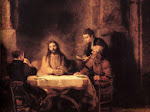
Augustine moves from exploring memory (in Book X) to exploring time by asking something most of us never consider - what is time? Augustine wants to explore this in part to answer some silly questions and objections that had been raised, such as - did God just do nothing before he created the world? Did God change his mind when he decided to create the world? - and other such questions (and challenges).
Augustine begins by admitting that questions about time involve difficult matters, and he prays to God for help. Part of the problem is God, who is eternal, exists outside of time - while we exist in time. So for us, it's difficult to understand existence where everything past, present, and future, exists now and always.
Another problem involves the existence of time. Augustine points out the future does not  exist, we only anticipate it's coming. The past equally does not exist, we only have a memory (which he explored in Book X) of it. Only the present seems to exist, but it very quickly passes from future to past. Oddly, when we measure time, we measure something that does not exist - we only measure the time it takes for the future, which does not exist, to move to the past, which does not exist. While we think we might be measuring the present, in fact, we can't truly measure the present. Yet, while time may only exist in our mind, we cannot exist, or even think, without it, and so, we live with it because we must.
exist, we only anticipate it's coming. The past equally does not exist, we only have a memory (which he explored in Book X) of it. Only the present seems to exist, but it very quickly passes from future to past. Oddly, when we measure time, we measure something that does not exist - we only measure the time it takes for the future, which does not exist, to move to the past, which does not exist. While we think we might be measuring the present, in fact, we can't truly measure the present. Yet, while time may only exist in our mind, we cannot exist, or even think, without it, and so, we live with it because we must.
For Augustine, time is intimately connected with God, since God created time along with the  universe - so that a contemplation of time should bring us to praising God - to be in awe and wonder of Him and His creation. For Augustine, the words "In the beginning . . . " in Genesis should be viewed as being for our benefit, since we are in time, and in a spritual sense (following Ambrose) as God being the source of our being, as well as the First Cause of everything. So for us, who are in time, the creation occurred at a point of time before everything else. For God, who is eternal, the creation occurred in eternity, even though, in part, God stepped into time, so to speak for our benefit, so that, from our perspective, the creation occurred in the beginning. Though Augustine finds this reasonable, he readily admits the mystery this involves which goes beyond our complete understanding.
universe - so that a contemplation of time should bring us to praising God - to be in awe and wonder of Him and His creation. For Augustine, the words "In the beginning . . . " in Genesis should be viewed as being for our benefit, since we are in time, and in a spritual sense (following Ambrose) as God being the source of our being, as well as the First Cause of everything. So for us, who are in time, the creation occurred at a point of time before everything else. For God, who is eternal, the creation occurred in eternity, even though, in part, God stepped into time, so to speak for our benefit, so that, from our perspective, the creation occurred in the beginning. Though Augustine finds this reasonable, he readily admits the mystery this involves which goes beyond our complete understanding.
On to Book XII
Back to Book X.












































